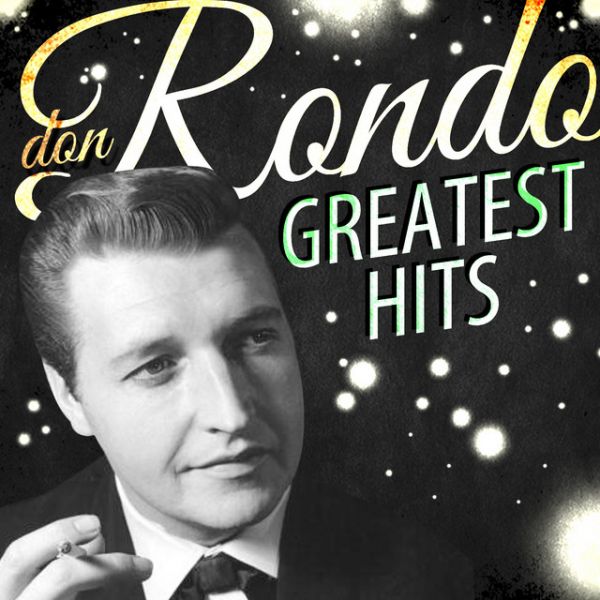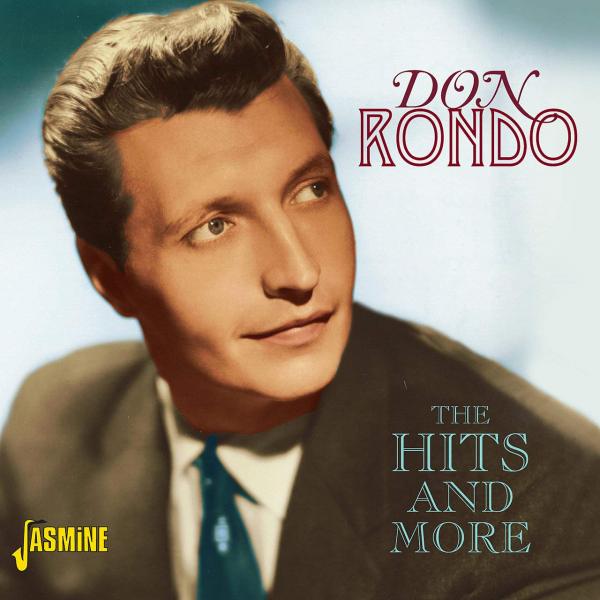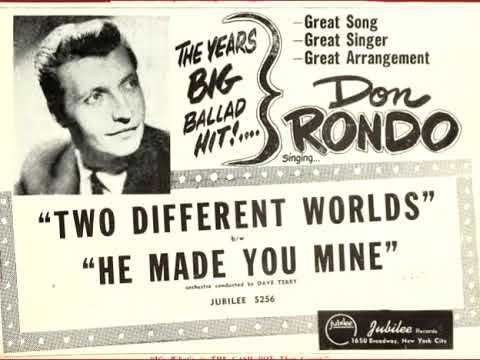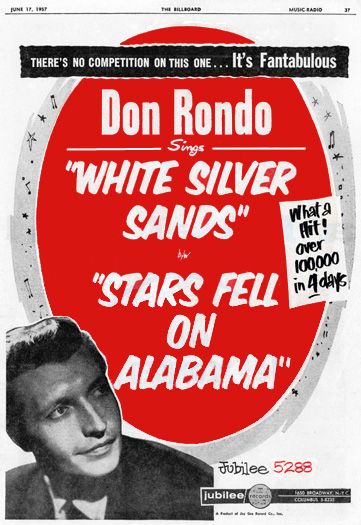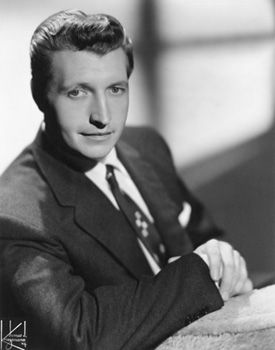Don Rondo
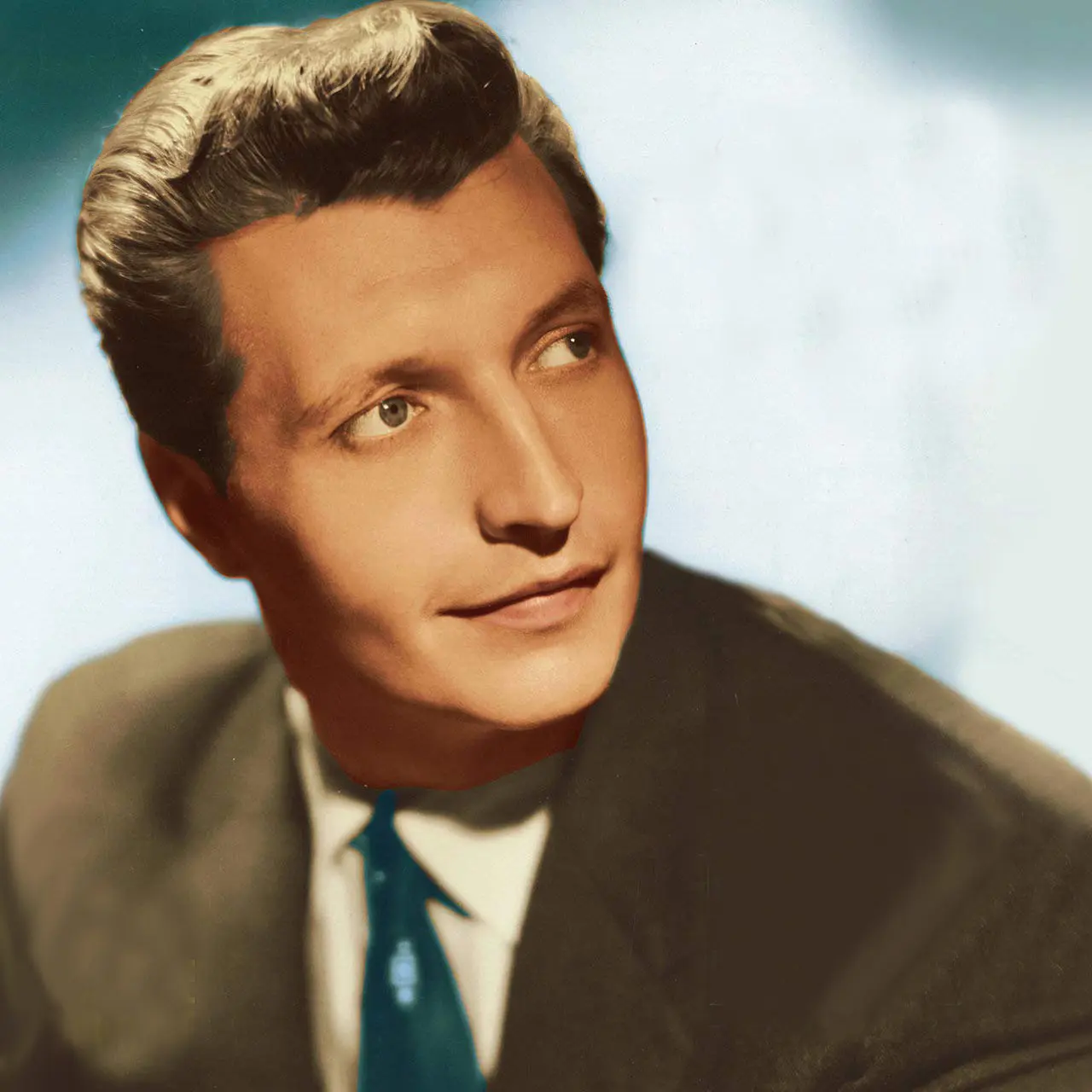
Born Donald Theodore Rondeau on January 5, 1930, Don Rondo grew up in Palmer, Massachusetts on his father’s dairy farm, the youngest of nine, and performed all the tasks that one would expect on a dairy farm. What he loved most about the place, though, was singing in the concrete barn, which made for a natural echo chamber.
One day, in his teens, he was singing into a pitchfork as if it were a microphone and one of the farm’s suppliers heard him, thought that he had a great voice and convinced him to enter a Lions Club talent show in Ware, Massachusetts. Despite having no formal training or previous training, he came in second and thus began a 50-year career in entertainment.
EARLY CAREER
After that Lions Club event, Rondo began singing in local minstrel shows. In the audience one night was the program director for WACE radio in Chicopee, Massachusetts, who asked if he’d be interested in doing a weekly, 15-minute show on the station. Showing an admirable commitment to family over work, Rondo said that he would as long as it didn’t interfere with his morning milk deliveries. Shortly afterwards, CBS affiliate WMAS in Springfield asked him to host a program for them. Momentum was building.
From there, he joined a 14-piece band as vocalist, gigging around Springfield and Harford on Friday and Saturday nights at a time when there were “about a gazillion nightclubs” in the area, as Rondo put it, that hosted live music. Some of the clubs held regular talent shows where he’d sing a couple of songs and was regularly invited to sit in with the bands after his performance. Soon he was so busy with the music side of his life that it interfered with his chores on the family farm, so he got a part-time job as a plumber’s helper.
LESTER SHIRR, “TWO DIFFERENT WORLDS,” BANDSTAND, DICK CLARK
In 1956, while Rondo was in New York City renting a rehearsal space, singer-actress Fay DeWitt noticed his talent and asked him if he’d audition for her manager, Lester Shirr. After he passed the audition with flying colors, Shirr became the only manager that Rondo ever had. He told Rondo he needed to come up with $2,000 to produce a single (about $24,000 in 2024) and Rondo’s brother-in-law raised the funds by taking loans from friends. Shirr suggested the song “Two Different Worlds,” which showed his knack for choosing hits; released on Jubilee records (home of The Cadillacs and Della Reese), the tune became Rondo’s first million seller. A few days later, when he was listening to WNEW in his car, Rondo heart his singing voice on the air for the first time. He pulled to the side of the road and cried tears of disbelief and joy, he said.
Soon after, Rondo was on a plumbing job when his sister came to his worksite and told him that Shirr had called to say that he needed him in Philadelphia right away to appear on WFIL-TV’s popular show Bandstand. Rondo arrived at the station, only to be informed that the show had been canceled for the day because the host, Bob Horne, had been fired for drunk driving and alleged statutory rape. Feeling badly about the unforeseen circumstances and wanting to make sure Rondo’s trip to Philly wasn’t wasted, the TV execs told him to go to another part of the building where the station aired a radio show also called Bandstand.
When Rondo entered the studio, sitting there spinning records was 27-year-old Dick Clark, who was completely unknown outside of Philadelphia at the time. Rondo explained the situation, said that he had a copy of his record and Clark asked him one question: “Is it clean?” Rodo assured him that it was, the studio went live and Clark played the single. “Ladies and gentlemen, I’ve got a record here and the artist is standing right behind me,” he said before putting needle to vinyl.
From that day forward, Clark hosted Bandstand, which was renamed American Bandstand in August 1957, when ABC picked up the show and it went national. “Two Different Worlds” made it to #11 in the Billboard Hot 100 in November 1956 and Rondo appeared on American Bandstand several times having forged a unique kind of friendship with the now-iconic Clark.
“WHITE SILVER SANDS,” ARTIE FIELDS, JINGLE SINGING
Ten months after “Two Different Worlds” hit the airwaves, Rondo recorded his second million seller, “White Silver Sands,” which hit #7 in the Hot 100 in July 1957, becoming his biggest hit. After that, he appeared on all the top TV shows of the era in addition to American Bandstand, including multiple times on those hosted by Ed Sullivan, Soupy Sales, Patti Page and Steve Allen. For the next few years, Rondo played popular nightclubs all around the world including a USO-type tour for troops. As rock ‘n’ roll began commandeering mainstream radio in the early ‘60s, however, his crooner style became less popular and club gigs became scarce. To make matters worse, Shirr died in 1963, leading Rondo to believe his singing days were over. He’d all but decided to pack it in until he met Artie Fields, who convinced him to try doing commercials.
Rondo wasn’t crazy about the idea but was interested enough that he agreed to record a jingle for Frankenmuth beer. He had to sing it in several languages, which he found difficult and didn’t enjoy at all, deciding that the ad business probably wasn’t for him. He changed his tune after his wife, Ida Mae, handed him an envelope full of royalty checks. Amazed at how lucrative jingle singing could be, Rondo called Fields immediately. “You got any more commercials for me?” he asked.
Rondo went on to record hundreds of jingles including ones for Chevrolet, Dodge, Alcoa and Stroh’s beer, but the best known remains one of the most famous commercials of all time. If you remember hearing “Wherever wheels are turning, no matter what the load, the name that’s known is Firestone, where the rubber meets the road,” then you know Don Rondo’s voice. The commercial played for seven years during NFL games.
ZEIBART FRANCHISEE, THE BOTTOM LINE WITH DON RONDO, DEATH
In later years, doing an ad for Zeibart rustproofing resulted in a second career of sorts. During his negotiations with the company, he told them that Rusty Jones Rustproofing also wanted to use him for a commercial, but Ziebart wanted an exclusive arrangement. As a solution, Rondo asked for – and got – his own Ziebart franchise in New Hampshire. He remained a Ziebart dealer for 27 years.
After doing the jingle for Zeibart, Rondo negotiated a deal with ABC affiliate WMUR (Manchester, New Hampshire), where he did Ziebart commercials that included mentioning other dealers in the region. Through that relationship, he became close friends with WMUR’s manager, Larry Gilpin. The two often talked about politics and, because of Rondo’s colorful style, Gilpin asked him if he’d be interested in doing a talk show. The result was The Bottom Line with Don Rondo, which became a Sunday-morning staple in the area. Rondo passed away on January 27, 2011, shortly after his 81st birthday from lung cancer. His great voice was silenced – but not forgotten.
(by Fred Bramante, Gary Reynolds, Gary Rondeau)

